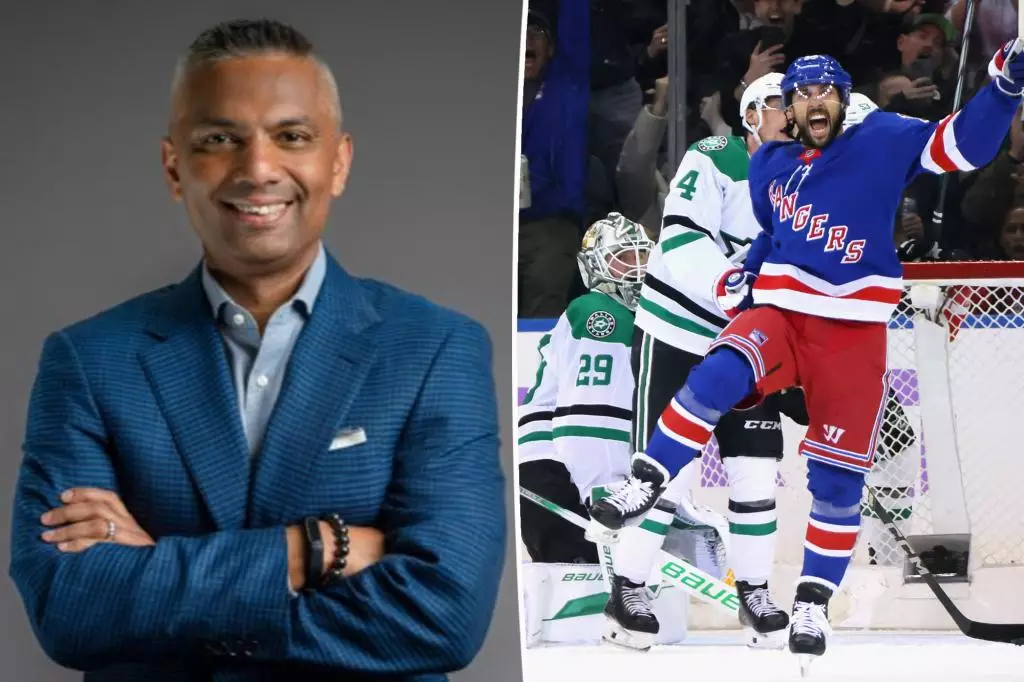During a recent hockey game between the New York Rangers and the Dallas Stars at the iconic Madison Square Garden, an unexpected guest made waves amongst the crowd. Dennis Mathew, CEO of Altice, the parent company of the cable provider Optimum, was spotted enjoying a hot dog and cheering for the Rangers—despite his company not airing the game due to an ongoing dispute with the venue. This peculiar sight raised eyebrows, as Mathew’s presence highlighted both the absurdity and complexity of the current state of sports broadcasting, particularly in one of the largest media markets in the United States.
Since January 1, Optimum has not shown games broadcast by the MSG Network, which includes both the Rangers and the Knicks. The central issue is a bitter negotiation regarding carriage fees, which are essentially payments made by cable providers to air programming. Altice is currently paying approximately $10 per subscriber to MSG, a figure that they are seeking to renegotiate. They argue that the new proposal from MSG would unjustly require Optimum customers to pay for games they do not wish to watch—an instance that many find reminiscent of price-gouging tactics.
Mathew’s attendance at the game could be viewed in two contrasting lights: on one hand, it demonstrates a commitment to the sport and a personal investment in its success; on the other, it symbolizes a disconnect between corporate practices and customer experience. Insiders suggest that his presence underscores the unresolved tension between content providers and their audiences. Here is a CEO who leads a company whose customers have been left in the lurch, unable to view their beloved teams play while he cheers in person.
Although Altice representatives later claimed that Mathew’s presence was due to a “long-planned business meeting” with clients, the optics of such a scenario cannot be ignored. It raises questions about corporate strategies employed during public disputes. Was this merely a PR maneuver aimed at soothing frayed customer sentiments, or was Mathew genuinely eager to support the home team in a time of corporate turmoil?
In today’s world where viewer loyalty is increasingly hard to attain, actions like these can have lasting consequences. Would it have been more prudent for Mathew to engage with customers and fans in a more transparent manner, rather than participate in the game that has created discontent among them? Today’s entertainment landscape demands deeper engagement, and maybe Mathew’s outing simply missed the mark.
What’s most compelling about this situation is how it reflects broader trends in the sports broadcasting landscape. With significant portions of the audience gravitating towards streaming options, traditional cable providers may find themselves cornered into desperate negotiations driven by dwindling subscriber bases. As the standoff continues, one must wonder whether fan loyalty will shift in the face of corporate greed and posturing.
Ultimately, the saga unfolding at Madison Square Garden is not merely a conflict between two giants but a microcosm of the struggles that fans endure in the evolving dynamic of sports consumption. Watching from home is no longer just about flipping channels; it’s about scrutinizing the ethics of corporate relationships in a space where every dollar matters. The disruption of viewing experiences challenges the foundations of customer loyalty, and how companies navigate these choppy waters may well define their futures.

